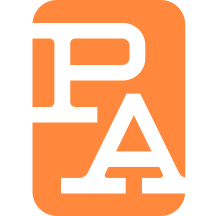Glossary of Terms
Acupoint: One of over 2000 specific points on the body where a therapeutic modality (acupuncture, acupressure, moxibustion, massage) can be applied. Acupoints (or acupuncture points) are located on meridians. There are approximately 360 acupoints on the 14 major meridians and typical acupuncturists use about 100 of those points on a daily basis.
Acupressure: Direct pressure applied to an acupuncture point or “trigger-point”. Typically, pressure is applied to more than one point at a time. Its goals are similar to acupuncture, but uses no needles. This technique is included in Tui Na.
Electro-acupuncture: Also know as Percutaneous Electrical Nerve Stimulation (PENS), it consists of small clips (one positive and one negative) attached to two needles on one end and to a small box outputting a microcurrent on the other end. It is used to strengthen the effect of an acupuncture treatment or to deal with nerve pain or other neurological problems (i.e. Bell’s Palsy)
Herb: Plant, animal or mineral material or part thereof. Used in Chinese herbal medicine in conjunction with other herbs to create a formula
Herbal Formula: A combination of herbs used to treat a specific condition or set of conditions. A typical Chinese herbal formula is made up of between six and twelve herbs. Multiple herbs are used so that a balanced formula can be created, minimizing the potential for side effects. Formulas may be taken for several days or several months and are typically taken 2-3 times/ day. Dosage varies depending on delivery method
Meridian: A traditional Chinese medicine term for each of the 16 vertically oriented pathways throughout the body for the flow of qi, or vital energy, accessed through acupuncture points. There are 14 major meridians on the body (each associated with an internal organ) and six extraordinary meridians.
Qi: Literally meaning “vital air” or “vital breath,” qi is a Chinese term for vital energy or life force. In traditional Chinese medicine, qi (pronounced “chee”) is believed to regulate a person’s spiritual, emotional, mental, and physical balance, and to be influenced by the opposing forces of yin and yang. It also refers to the oxygenation of vital organs, which is required for optimal function.
Tincture: An extract of a plant made by soaking herbs in a dark place with a desired amount of either glycerine, alcohol, or vinegar for two to six weeks. The liquid is strained from the plant material and then may be used therapeutically.
Traditional Chinese Medicine (TCM): A whole medical system that was documented in China by the 3rd century B.C. TCM is based on a concept of vital energy, or qi, that is believed to flow throughout the body. TCM proposes that qi regulates a person’s spiritual, emotional, mental, and physical balance and is influenced by the opposing forces of yin (negative energy) and yang (positive energy). Disease is proposed to result from the flow of qi being disrupted and yin and yang becoming unbalanced. Among the components of TCM are herbal and nutritional therapy, restorative physical exercises, meditation, acupuncture, and remedial massage.
Yin: A relative term (in relation to Yang) associated with the more substantial parts of our being and of nature. Yin is associated with the feminine, nourishment, dark, moist, coolness, substantial, and being rooted or grounded. In a word, yin is calm.
Yang: A relative term (in relation to Yin) associated with the more energetic parts of our being and nature. Yang is associated with the masculine, life-force, energy, brightness, warmth, the ethereal, and rising up. In a word yang is active.
